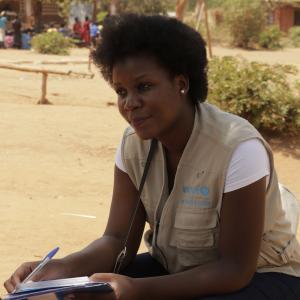UK Aid provides K1.7 billion for Covid-19 response in Malawi
27 March 2020
“We recognise the need to act fast, to help Malawi prepare for the threat of Covid-19. This is why we have provided £1.8 million with immediate effect, to set up emergency treatment units and rapid response teams, and critically, to boost public health messaging,” said Head of DFID in Malawi, David Beer.
Press Release
Lilongwe: The UK’s Department for International Development (DFID) has provided approximately 1.7 billion kwacha (£1.8 million) to UNICEF to strengthen Malawi’s capacity to prevent a COVID-19 outbreak in the country. Although Malawi does not have confirmed cases at the moment, so far the Covid-19 outbreak has affected 197 countries with over 18,000 deaths, and over 400,000 confirmed cases as of 26 March 2020, according to the World Health Organization. There are 1,808 confirmed cases in Africa across 39 countries. Malawi’s neighbors, Zambia, Mozambique, Tanzania all have reported cases.
With this UK Aid funding, UNICEF is supporting the Ministry of Health to improve airport and border screening capacity; train health workers to respond to a potential outbreak; and equip emergency treatment units with medical and intensive care supplies as well as water and sanitation facilities so that they are ready to treat potential cases. DFID has also helped set up the testing facility in the national Public Health laboratory in Lilongwe.
Head of DFID in Malawi, David Beer, said “We recognise the need to act fast, to help Malawi prepare for the threat of COVID-19. This is why we have provided £1.8 million with immediate effect, to set up emergency treatment units and rapid response teams, and critically, to boost public health messaging. I call on all Malawians to follow official advice, especially on handwashing and social distancing.”
“In the absence of effective treatment, raising awareness of the risk factors for Coronavirus infection and the protective measures individuals and communities can take, is the only way to reduce human infection. Thanks to DFID through UNICEF for this very timely support to the Malawi Government,” said the Secretary for Health and Population Dr Dan Namarika.
“There is no vaccine or specific antiviral medicine to treat this virus. The best course of action is to avoid infection. UNICEF is supporting the Ministry of Health and Population to develop contingency plans and communication materials. The support from DFID is timely and will assist our ongoing collaborative effort with the Government of Malawi to prevent the virus from spreading in Malawi,” said UNICEF Malawi Representative Rudolf Schwenk.
Misinformation has cropped up all over the world including in Malawi since COVID-19 began spreading. UK Aid funding will also help ensure that citizens will receive accurate, reliable information about what to do to protect themselves.
###
Note to editors
- COVID-19 is a new virus linked to the same family of viruses as SARS and some types of common cold. It is transmitted through direct contact with respiratory droplets (from coughing and sneezing), and touching surfaces contaminated with the virus.
- Symptoms can include fever, dry cough, fatigue, and shortness of breath. Some may have very mild or no symptoms. Most people (about 80 per cent) recover without needing special treatment. In more severe cases, an infection can cause pneumonia, severe illness, and death in some patients. Older people and those with underlying medical problems are at a higher risk of developing a serious illness.
- To avoid the risk of transmission, people should:
- Wash their hands frequently using soap and water or an alcohol-based hand rub;
- Cover their mouth and nose with flexed elbow or tissue when coughing or sneezing – not your hands;
- Avoid close contact with anyone who has a cough or other flu-like symptoms;
- Ensure children’s routine immunizations are up to date;
- Seek medical care early if they have fever, cough and difficulty breathing, and share previous travel history with their health care provider;
- On 28 February 2020, WHO upgraded its assessment of the risk of coronavirus and public health impact at the global level from “high” to “very high”, signaling the urgency for every country to act aggressively to contain the disease and mitigate the impact on those affected.
- Misinformation has cropped up across the internet since #coronavirus, or #COVID-19, began spreading. #UNICEF Health Experts give us the facts and six things they think you should know. We remind all to seek reliable sources on how to prevent #coronavirus or #COVID19 and not to pass on unverified information from mass media and social media posts. Please visit UNICEF’s website, the Ministry of Health’s Facebook page or the World Health Organization.



